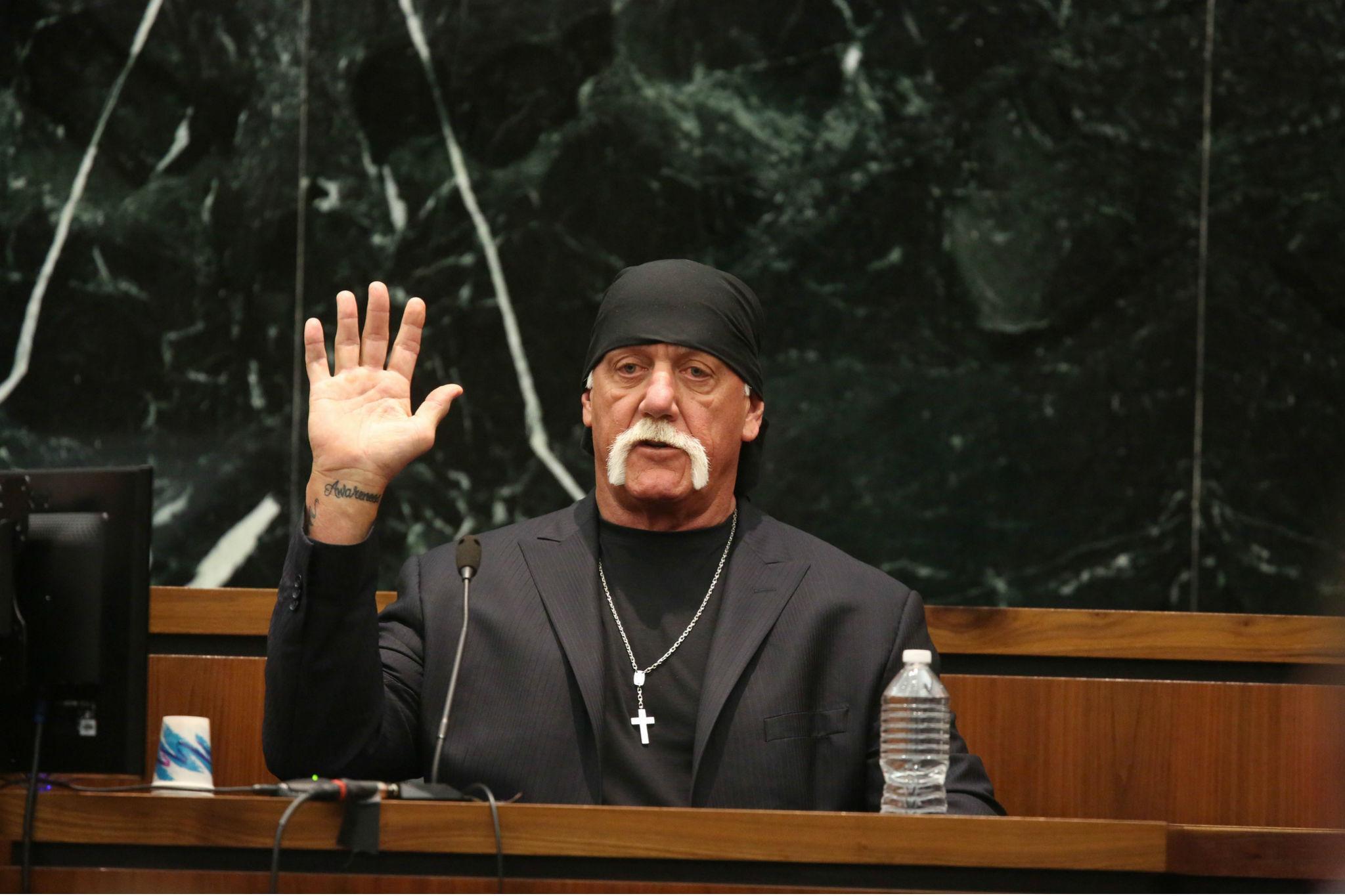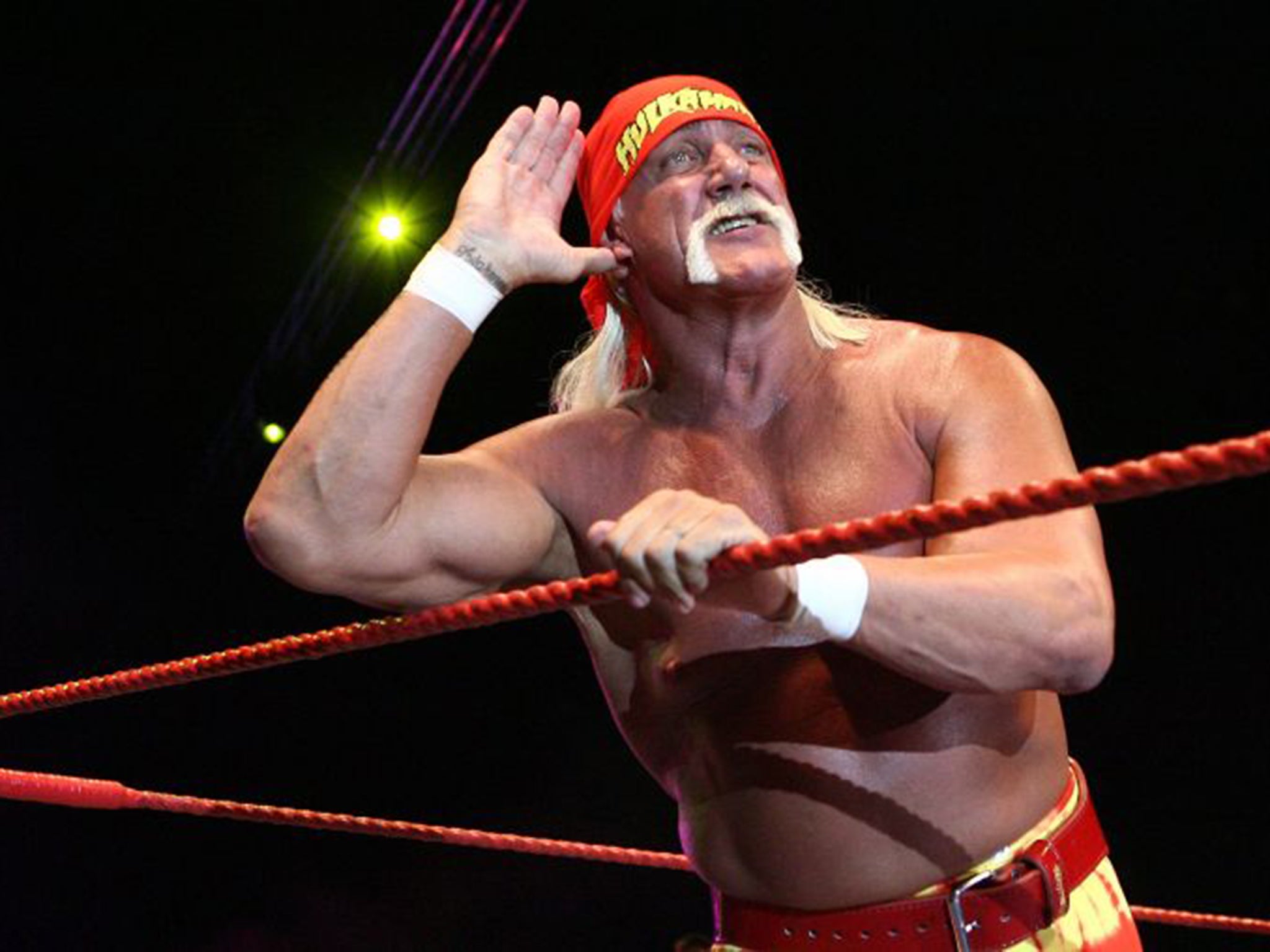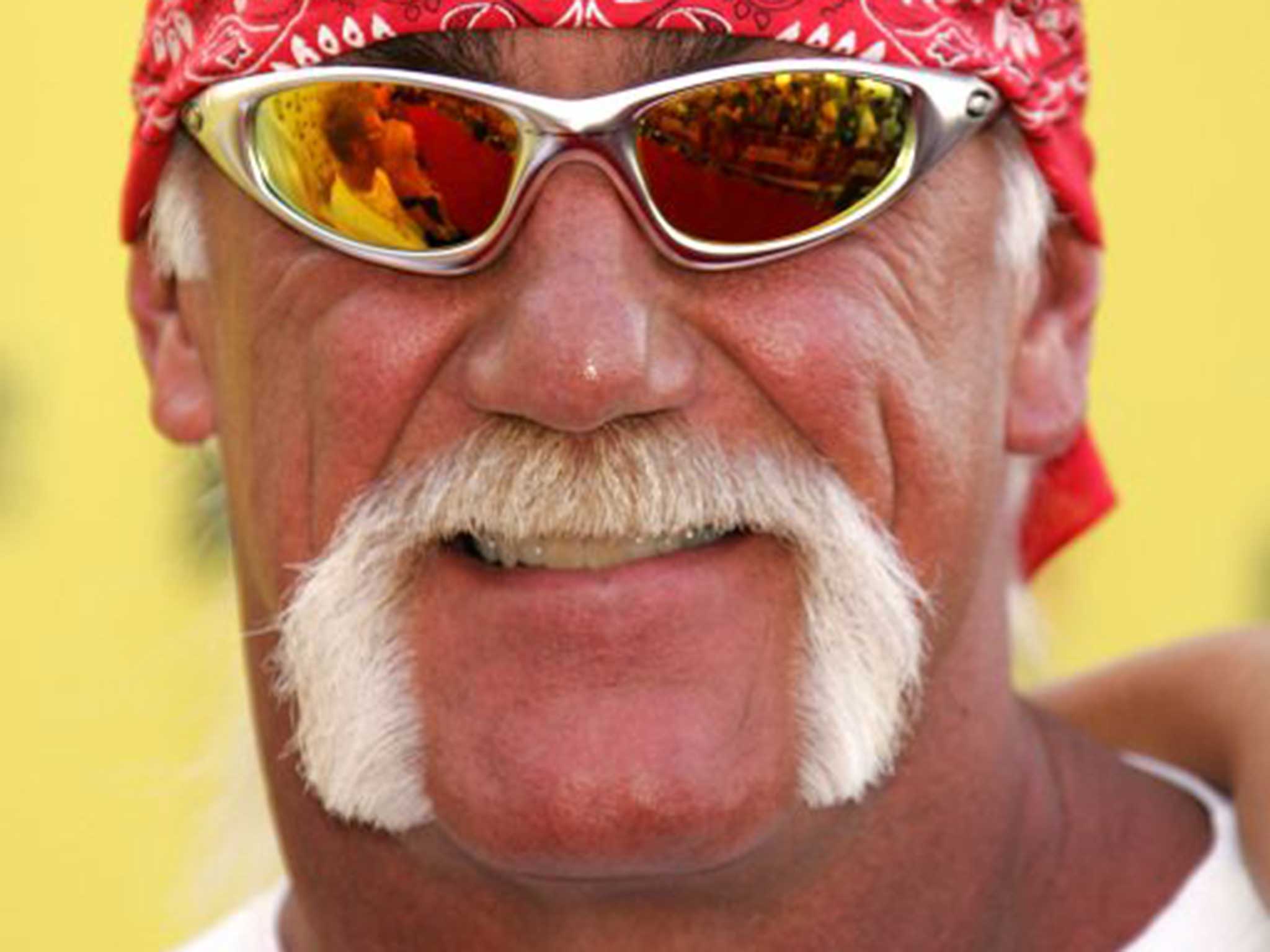The scariest movie at Sundance was a documentary about Hulk Hogan
The documentary, ‘Nobody Speak: Hulk Hogan, Gawker and Trials of a Free Press’, about Terry ‘Hulk Hogan’ Bollea’s sex tape trial, takes a timely look at the freedom of press

Your support helps us to tell the story
From reproductive rights to climate change to Big Tech, The Independent is on the ground when the story is developing. Whether it's investigating the financials of Elon Musk's pro-Trump PAC or producing our latest documentary, 'The A Word', which shines a light on the American women fighting for reproductive rights, we know how important it is to parse out the facts from the messaging.
At such a critical moment in US history, we need reporters on the ground. Your donation allows us to keep sending journalists to speak to both sides of the story.
The Independent is trusted by Americans across the entire political spectrum. And unlike many other quality news outlets, we choose not to lock Americans out of our reporting and analysis with paywalls. We believe quality journalism should be available to everyone, paid for by those who can afford it.
Your support makes all the difference.The civil trial between Terry “Hulk Hogan” Bollea and blog network Gawker Media was sleazy and salacious. The case revolved around a sex tape, featuring the former wrestler and the wife of his best friend Bubba the Love Sponge, so naturally some preferred to look away. The suit might have seemed like another vile byproduct of internet culture, but if you weren't paying attention, you might have missed the broader point.
The suit was “one of the most important first amendment cases in US history”, according to one expert who appears in the documentary Nobody Speak: Hulk Hogan, Gawker and Trials of a Free Press, and the movie makes a frightening argument that the trial’s outcome could undermine America’s first amendment rights guaranteeing freedom of speech and of the press.
Director Brian Knappenberger’s movie, which premiered last week at the Sundance Film Festival, walks us through the case with the help of Gawker’s founder Nick Denton, various media journalists and first amendment scholars. Bollea chose not to participate.

Not everyone took Gawker seriously as a media organisation. After all, some of its reporting could be flip or cruel, poking fun at celebrities and publishing unverified rumours. It broke the rules set by mainstream publications to verify facts. The late New York Times reporter David Carr compared the company to high school mean girls, bullying people for fun. And yet, some of the blogs in the Gawker empire broke news, including stories about disgraced Toronto mayor Rob Ford and the sexual assault allegations against Bill Cosby.
When Bollea decided to sue Gawker after the site posted a clip of a sex tape he claimed he didn't know about, some people applauded the news. A site that revelled in schadenfreude was finally getting its comeuppance, especially when Hogan's win caused it to go bankrupt. But, looking at the bigger picture, was that a good thing? Renowned constitutional law expert Floyd Abrams finds the case problematic.
“We don't get to pick and choose what sorts of publications are permissible,” Abrams says in the documentary. If one is ruined through a law case, others become vulnerable, too.
Normally such a case would be fairly easy for a news company to win, because Hulk Hogan is not only a public figure – meaning he'd have to prove that Gawker had malicious intent – but one who had discussed his sexual prowess, opening up the door for a sex tape to be newsworthy. But he came up with a crazy scheme that worked. His attorneys argued that the sex tape didn’t violate the privacy of Hulk Hogan, but it did infringe on the rights of Bollea – the private man behind the brash character.
The fact that Bollea won was a blow for journalists. Not only did he bankrupt Gawker and Denton, but the case also did something unheard of: it targeted the reporter who published the story. AJ Daulerio is now hundreds of thousands of dollars in debt. What was even more alarming was the fact that Bollea didn’t pay for his lawyer. After the verdict, Silicon Valley venture capitalist Peter Thiel admitted to bankrolling the case. As it turned out, Thiel had a vendetta against Gawker dating back to a story with the headline “Peter Thiel is totally gay, people”. And with one civil case, Thiel had his revenge.
Thiel brushed off his detractors by claiming that he is actually a champion of journalism. “I refuse to believe that journalism means massive privacy violations,” he told The New York Times after his involvement was revealed. “I think much more highly of journalists than that. It’s precisely because I respect journalists that I do not believe they are endangered by fighting back against Gawker.”
The big problem, the movie explains, is that Thiel’s tactic has now opened the door for other rich people, or wealthy corporations, to follow his lead. The rich keep getting richer, but journalistic organisations, which hold the wealthy and powerful accountable for their misdeeds, are becoming more fragmented and vulnerable. Meanwhile, the US now has a President who has waged war on the media, calling reporters – even those who write factual accounts of events, such as his inauguration crowd numbers – dishonest. Trump, who is close with Thiel, is also famously litigious.

So what does all this mean for the US’s first amendment rights and the ability of reporters to do their jobs? We don't know yet, and the director of the documentary isn't helping to allay anyone's fears. “I think it's legitimate to be scared about it,” Knappenberger said during a post-screening discussion. “[Trump’s] rise was the result of an assault on the press.”
The question is what the President – and other people who don't like what's being reported – will do about it.
© Washington Post
Join our commenting forum
Join thought-provoking conversations, follow other Independent readers and see their replies
Comments